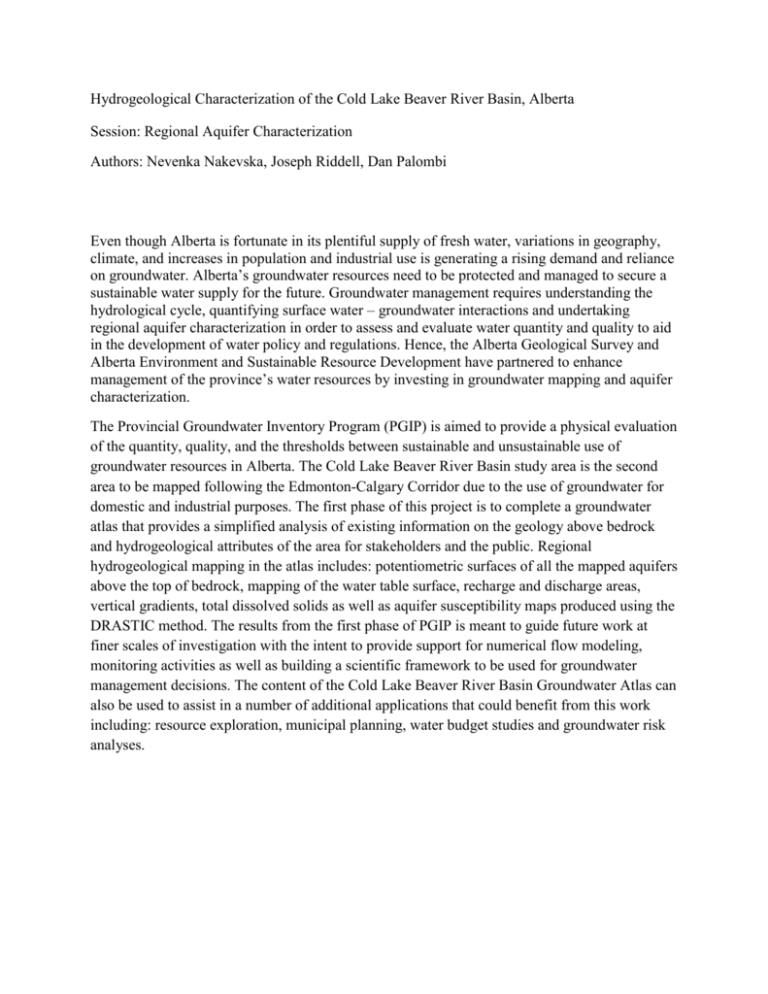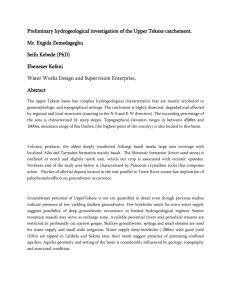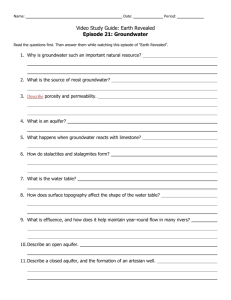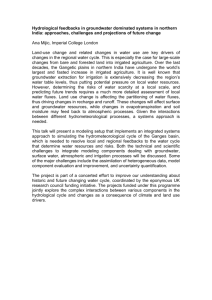Abstract - GeoMontreal 2013
advertisement

Hydrogeological Characterization of the Cold Lake Beaver River Basin, Alberta Session: Regional Aquifer Characterization Authors: Nevenka Nakevska, Joseph Riddell, Dan Palombi Even though Alberta is fortunate in its plentiful supply of fresh water, variations in geography, climate, and increases in population and industrial use is generating a rising demand and reliance on groundwater. Alberta’s groundwater resources need to be protected and managed to secure a sustainable water supply for the future. Groundwater management requires understanding the hydrological cycle, quantifying surface water – groundwater interactions and undertaking regional aquifer characterization in order to assess and evaluate water quantity and quality to aid in the development of water policy and regulations. Hence, the Alberta Geological Survey and Alberta Environment and Sustainable Resource Development have partnered to enhance management of the province’s water resources by investing in groundwater mapping and aquifer characterization. The Provincial Groundwater Inventory Program (PGIP) is aimed to provide a physical evaluation of the quantity, quality, and the thresholds between sustainable and unsustainable use of groundwater resources in Alberta. The Cold Lake Beaver River Basin study area is the second area to be mapped following the Edmonton-Calgary Corridor due to the use of groundwater for domestic and industrial purposes. The first phase of this project is to complete a groundwater atlas that provides a simplified analysis of existing information on the geology above bedrock and hydrogeological attributes of the area for stakeholders and the public. Regional hydrogeological mapping in the atlas includes: potentiometric surfaces of all the mapped aquifers above the top of bedrock, mapping of the water table surface, recharge and discharge areas, vertical gradients, total dissolved solids as well as aquifer susceptibility maps produced using the DRASTIC method. The results from the first phase of PGIP is meant to guide future work at finer scales of investigation with the intent to provide support for numerical flow modeling, monitoring activities as well as building a scientific framework to be used for groundwater management decisions. The content of the Cold Lake Beaver River Basin Groundwater Atlas can also be used to assist in a number of additional applications that could benefit from this work including: resource exploration, municipal planning, water budget studies and groundwater risk analyses.





